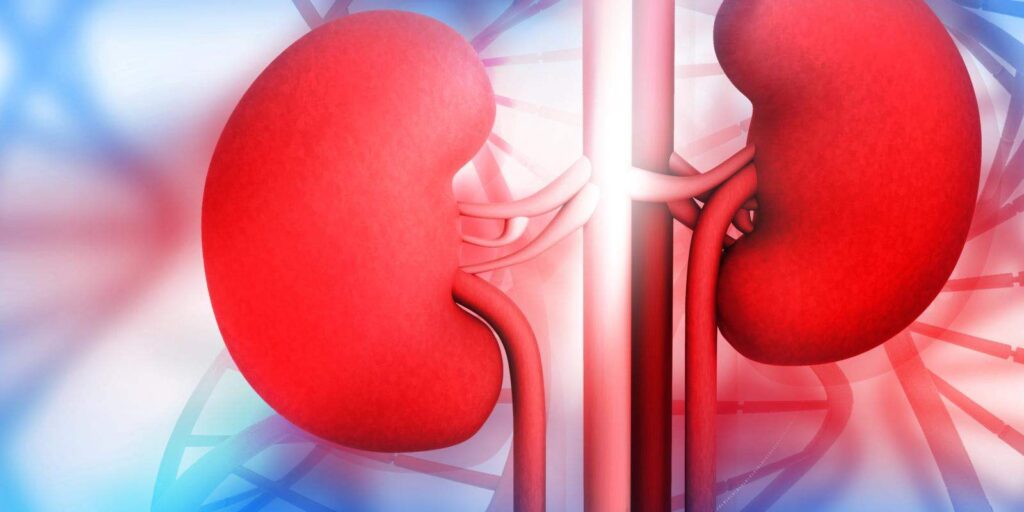In this article, we will emphasize Homeopathy Treatment For Chronic Kidney Failure. Chronic renal failure consists of the progressive and irreversible deterioration of renal function. Urea and creatinine levels begin to rise when the glomerular filtration rate (the rate at which blood filters through the kidneys) falls below 25 to 35%. Patients may be relatively asymptomatic or present with anemia, arterial hypertension, polyuria, or nocturia. When glomerular filtration falls below approximately 15%, the signs of uremic syndrome begin to appear. Also Read Homeopathy Treatment For Uric Acid.
Homeopathy Treatment For Chronic Kidney Failure
Aura Homeopathy Treatment For Chronic Kidney Failure offers a personalized approach to treating chronic kidney failure, focusing on the unique symptoms and overall health of each patient. This holistic method seeks to enhance the body’s natural healing processes, potentially slowing the progression of kidney damage. By selecting remedies tailored to individual needs, homeopathy aims to improve overall wellbeing and manage symptoms such as fatigue and fluid retention. Although not a cure for kidney disease, many patients find that homeopathic treatments provide significant relief and a better quality of life alongside conventional treatments. Always consult with a healthcare provider to determine the best course of action for your health.
Symptoms of chronic kidney failure?
- Electrolyte imbalances are common and can cause abnormalities in the levels of various electrolytes, such as potassium and bicarbonate.
- Cardiovascular manifestations include arterial hypertension, which occurs in up to 80% of patients with end-stage chronic renal failure.
- Gastrointestinal disorders like anorexia, nausea, and vomiting. A distinguishing sign is a uremic or ammoniacal odor produced by nitrogenous metabolites in saliva.
- Hematological Changes: Anemia is a symptom of chronic renal failure that appears early in the progress.
- Neurological Changes: Uremic encephalopathy is a common manifestation as a cognitive change ranging from difficulty concentrating to deep coma.
- Renal osteodystrophy causes bone pain, deformities (re-absorption of distal phalanges in fingers), fractures, and growth retardation in children.
- Dermatological Changes are a distinguishing feature of the condition, characterized by the skin turning straw-colored due to anemia and urochromes buildup. Additionally, itching or pruritus is a common and bothersome symptom.
- Hormonal Changes: Hormonal imbalances are another symptom of the condition. It frequently causes impotence and oligospermia, which is a decrease in sperm production. It can cause irregularities in the menstrual cycle in women and frequently results in amenorrhea or the absence of menstruation.
The most common symptoms are:
- Alterations of potassium and bicarbonate.
- Arterial hypertension.
- Anorexia, nausea, vomiting.
- Anemia.
What are the causes of chronic kidney failure?
Chronic kidney failure can be caused by a variety of factors, including acute renal failure resulting from a decrease in filtration, loss of functional units, or exposure to toxins. Obstructive conditions can also contribute to chronic kidney failure. It is important to identify and address these underlying causes to prevent the progression of chronic kidney failure and preserve kidney function.
What are the risk factors?
Several factors can predispose to the appearance of this disease, such as advanced age, chronic infection, diabetes, high blood pressure, immunological disorders, underlying kidney and liver problems, prostatic hypertrophy, and bladder obstruction.
The signs and symptoms that these patients present are:
- Decreased urine output.
- Lack of elimination of waste products through urine.
- Fluid retention causes swelling in the legs, ankles, or feet.
- Drowsiness, respiratory distress, fatigue, confusion, and even coma are serious cases and are usually associated with other diseases.
How is chronic kidney failure diagnosed?
- Blood and urine test: Decreased urine volume (less than 500 ml), increased blood urea and blood creatinine levels, and elevated electrolytes such as potassium.
- The ultrasound finding shows a decrease in the size of the kidney.
Homeopathy Treatment For Chronic Kidney Failure?
Chronic kidney disease (CKD) is a serious health condition that can lead to kidney failure if left untreated. Homeopathic medicine is very effective in managing CKD, particularly in the early stages of the disease.
There are over 132 different homeopathic remedies that can be used in Homeopathy Treatment For Chronic Kidney Failure, with the selection of the appropriate remedy based on a thorough case analysis. When chosen correctly, homeopathic remedies can provide effective treatment for CKD. Some of the most commonly used homeopathic remedies for CKD include Aconite, Arsenicum, Apocynum, Belladonna, and Digitalis. Also read Homeopathy Treatment for kidney patient.
Top medicine used in Homeopathy Treatment For Chronic Kidney Failure

Homeopathy Treatment For Chronic Kidney Failure
• Aconite is often recommended for individuals in the initial stage of kidney disease who are experiencing pain in the loins and bloodless urine.
• Arsenicum is a good choice for all stages of CKD when the skin is peeling, there is increased thirst, and diarrhea is present. Among the top used medicine in Homeopathy Treatment For Chronic Kidney Failure,
• Apocynum is an effective medicine for individuals with CKD who are experiencing a lack of urine, and it can also be used safely during pregnancy.
• Belladonna is recommended for individuals with kidney inflammation or kidney pain, while Digitalis is particularly useful when there is poor circulation in the body, especially in areas supplied by the kidney.
In conclusion, classical selected medicine can be a very effective treatment option for Homeopathy Treatment For Chronic Kidney Failure. A thorough case analysis is necessary to select the appropriate remedy, but with the right homeopathic medicine, individuals with CKD can experience improved kidney function and a better quality of life.
Call +91 9873537001 to order online or book an appointment.

